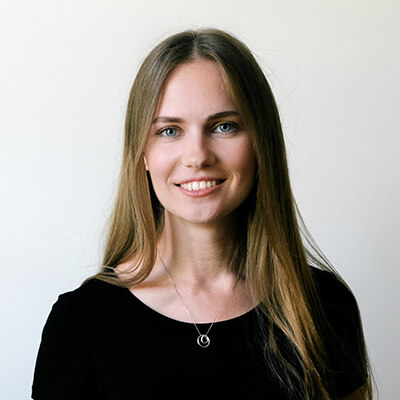
Interview with Gelatex CEO Mari-Ann Meigo Fonseca
The current pandemic poses a challenge to all of us. Whether it's coping with isolation or fear of an economic crisis, we're experiencing troublesome times. While some tend to draw inwards in the face of a crisis, others are focusing their energy on creating solutions. 2019 Green Alley Award winner Gelatex Technologies has decided to adapt their business to the current demand for face masks. The startup that is actually producing a sustainable alternative to leather has optimized their proprietary nanofiber production technology to make filter media for respiratory protective devices. In this interview CEO Mari-Ann Meigo Fonseca explains how the startup is coping and gives a valuable example of innovative startup energy even in these difficult times.
# How are you dealing with the current situation and what is the status quo of your business?
When the world entered in an emergency period state we as well started to think what it means for us and if we should change our business. We made a rule that only one person at the same time can be in our pilot production and moved all meetings online. We figured that we should test out if our proprietary nanofiber production machine that we before used to make gelatin fibers for our leather-like textile could be also used to make filters for protective masks. Over the last couple of weeks majority of the focus has been on that. We learned that there is a big scarcity in the world and huge need for such material. By now we have made first successful trials, have over 70 companies in the list as potential customers and last weekend we also won the first place at Health track in the worldwide online hackathon The Global Hack. Today we received the first initial test results indicating that the material can block 88% of 0.1 micrometer size particles. For N95/FFP2 masks that can block 95%, the test is made with particle size of 0.3 micrometers, so we believe that if we make comparable test, then our efficiency is even better. Next days will confirm that and if everything goes as planned, we could start production in small scale already next week and then prepare for scale.
# Where do you see the challenges and chances for startups right now?
The challenges depend definitely a lot in the industry but whatever you do, it is everyone's chance to make a change now. It is important to find ideas to help the societies and governments to get out of this stage as fast as we can. All startups could have the potential to develop a solution to help the fight against the virus. IT companies could develop tracking apps for example. The chances are innumerable, in such period of crisis human creativity comes up. Mankind has the amazing skill that can change the world for one day to another. The world will remain different for some time and it is important to see how we could adapt to changes.
# If you could give one advice to circular economy startups like yourself out there, what would it be?
Right now, in the times of crisis, it is natural that the health comes in the first place and sustainability as a second place. Even for us, we had to take in use a polymer that does not match with circular economy or sustainability principles but at least gives us fast and reliable results. However, even if health is now more important, we should not forget the environment. Therefore, we have also taken in use the most sustainable solvents possible and we plan to regenerate the solvent to keep it circulating. Also, we are researching more sustainable polymer alternatives and possibility to collect used filters in the future to make the new ones. My advice is that right now to think how you could adapt your business to the changed world immediately and sometimes it means that you have to be more flexible with your principles to get faster results but you should never forget the mindset about circular economy and sustainability and always come back to it.